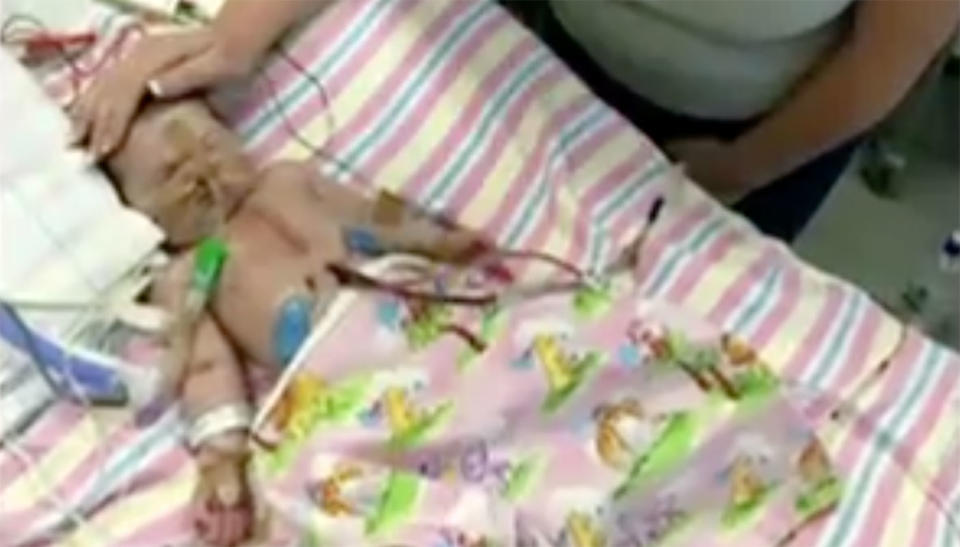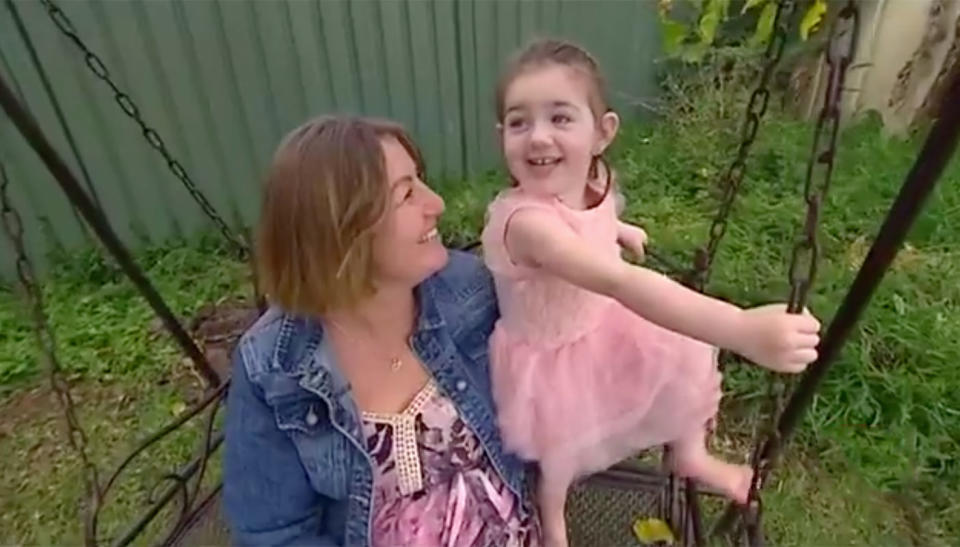Mother's impossible choice as baby is diagnosed with major heart defect
A mum has revealed the impossible choice she had to make during her pregnancy and how the result is now being used to help other babies.
At Sam Stasinowsky’s 22-week ultrasound she wanted to know if she was carrying a boy or a girl.
But the sonographer was silent.

The expectant Ms Stasinowsky said her little girl “was very quiet” and was diagnosed with a major heart defect.
“They’d already made up their mind,” she said.
“That it was best for us to not continue the pregnancy.”
But Ms Stasinowsky went through with the pregnancy anyway.

Little Sophie was born with her major heart arteries reversed and needed immediate surgery.
“I remember Dr Cooper saying she was doing really well, ‘you can have a quick cuddle before they take her’,” she said.
Sophie’s now two-years-old and doctors want to replicate the procedure used to save her.
Flight cancelled after passengers ‘treat plane like nightclub’
Warning over items washing up on beaches after ship loses cargo container

For the first time Australian researchers have unlocked vital clues revealing exactly how and when heart chambers form in unborn babies.
It’s hoped this advance will lead to new treatments for congenital heart disease, the most common type of birth defect.
Victor Chang Cardiac Research Institute’s Professor Richard Harvey said tiny heart chambers could form at just three weeks.
He believes a new understanding of the heart’s formation could translate into life-saving, early intervention.
“This might take the form of drug therapies, of stem cell therapies, of other types of treatments that would help that baby get through those early phases,” Professor Harvey said.


